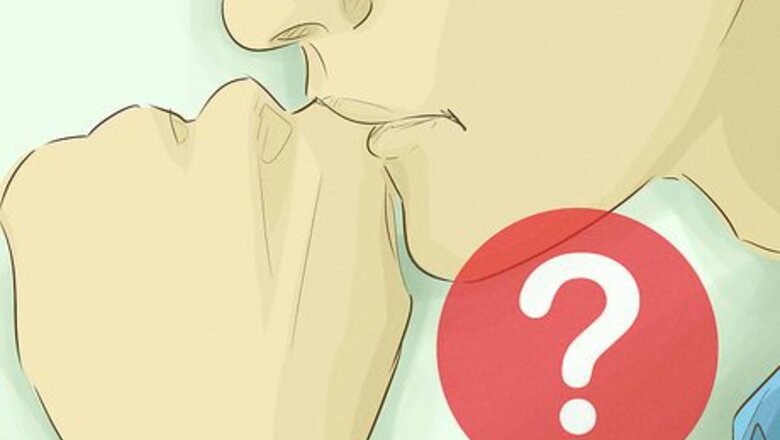
views
- Install porn blockers to avoid adult content so you're less tempted to masturbate.
- Meditate to destress and combat intrusive thoughts that relate to pornography.
- Join a support group for a judgement-free zone to talk about struggles with porn.
- Stay active, hang out with friends, pick up hobbies to stay busy and avoid porn.
Remove triggers that make you want to watch porn.
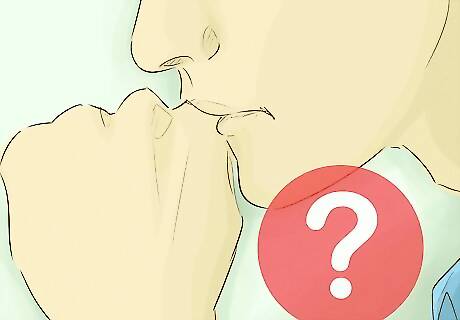
Install porn blockers and avoid provocative materials online. “Triggers” are any factors that make it more difficult to resist masturbating to porn, like suggestive photos online or subscriptions to cam sites. Use a service like Adguard, which not only blocks porn sites but all adult content in general. When you make porn nearly impossible to access, it'll be a lot easier to combat a dependence on it. Make sure to install a porn blocking app on your phone, too. Aim to update all your devices so they'll keep you from viewing porn. Download an app like BlockerX to keep any of your tech porn-free. To make it even harder to access pornography—especially since it’s so prevalent online— activate your browser’s safe search filter, which will prevent you from finding anything that’s sexually graphic. Try changing your scenery so it's porn-free, too. Avoid other forms of adult entertainment—like strip clubs—and revamp your room. Make sure it doesn't have suggestive materials around, like porn posters or magazines.
Try mindfulness and meditation.
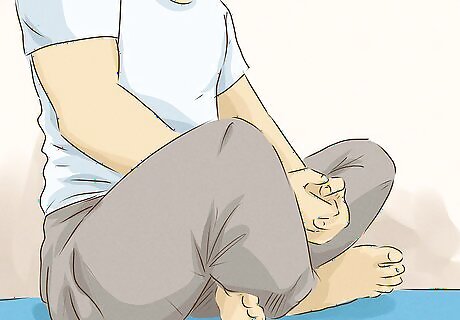
Calm and clear your mind to avoid thinking about porn. Meditation can help you feel relaxed and present, which might help reduce any stress or restlessness. Mindfulness also helps prevent intrusive thoughts, like a fixation on porn sites or suggestive videos. When you meditate, you also become more conscious of your emotions, so you’re less likely to use addictive habits to avoid them. If meditation becomes a part of your regular practice, you might even find yourself more at peace. For a simple meditation, sit or stand in a comfortable position. Then, focus your attention on your breath. When your thoughts wander, bring them back to your breath. Do this for at least 10 minutes. Listen to guided meditations on YouTube or try mindfulness apps like Headspace, Insight Timer, or Calm.
Work out more regularly.
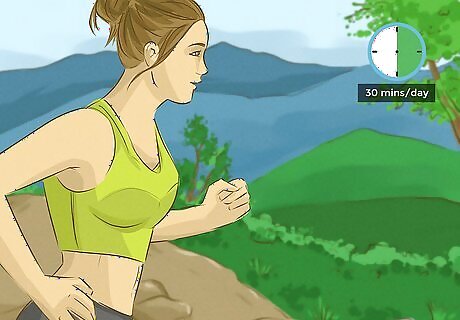
Use physical activity instead of porn to let off steam. If you watch porn and masturbate to unwind and relax, then exercising for 30 minutes a day is a great lifestyle swap. To help you release excess energy, add cardio to your workout. Choose activities that you enjoy—you might end up having so much fun that it becomes your favorite way to spend your free time. For example, jog in a scenic area, swim, or take a dance class. Consider going to the gym or joining a sports team, where you can connect with others. Exercise offer numerous benefits—it lowers stress, anxiety, and depression and boosts endorphins, dopamine, and serotonin, all of which can improve your mood.
Spend more time with your friends.

Enjoy real connections to avoid turning to porn. Masturbation is often a way to cope with loneliness and boredom, but it can also keep you inside and away from the people you care about. To end the routine of masturbating or watching porn to simulate a connection, schedule your day in a way that carves out a lot of time for meaningful social interactions. For example, if there's a particular time of the day that you masturbate, replace it with a social activity—at 7 P.M., after you're done with work, you can: text a friend, grab dinner with someone you're interested in, or play pool with your buddies. Studies have shown a correlation between masturbation addiction and social anxiety, so as you quit, you'll probably find a renewed sense of confidence and motivation to bond with others.
Pick up a new hobby.
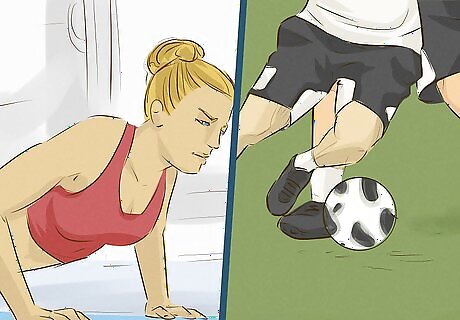
Replace porn with hobbies that are fun and engaging. Chronic masturbation to porn correlates with lower levels of concentration, reduced ability to focus on tasks, and less motivation—once you start a hobby in lieu of watching porn, you may find life a lot more pleasurable and interesting. You’ll not only distract yourself, but you’ll get better at the activities you love and boost your brain health. Hobbies have been proven to reduce your stress, improve your mood, decrease your anxiety, enhance your focus, and even lower your heart rate and blood pressure. A hobby is any activity you love doing during your free time—you might enjoy ones that are creative (like painting, writing, or sculpting), athletic (like playing soccer, learning martial arts, or kickboxing), academic (like studying business, coding, or poker), or leisurely (like vacationing or fishing).
Indulge in different types of self-care.

Treat yourself to other things that bring you pleasure. Any time you masturbate or watch porn, your body releases dopamine, a hormone that gives you pleasure. Naturally, the release of dopamine tempts you to consume more porn or masturbate more often. However, you can indulge in other simple joys that release bursts of dopamine, like eating your favorite foods, taking a relaxing shower, or watching a movie. Treat yourself to a variety of pleasurable activities, not just one. For example, eat a piece of candy on Monday, go to an arcade on Tuesday, buy yourself a book on Wednesday, listen to your favorite band on Thursday, go out with friends on Friday, go out to dinner on Saturday, and play your favorite video game on Sunday. When you get small bursts of dopamine (as opposed to many “hits” of it from chronically masturbating or watching porn), your mind and body will be more balanced, and you’re likely to feel more motivated because you’re seeking out a variety of new and novel rewards. Avoid any alcohol or drug use, as these types of rewards will contribute to a cycle of dependence and may lower your mental and physical well-being.
Join a porn addiction recovery support group.
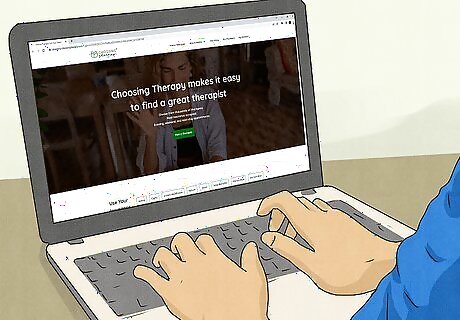
Try a 12-step program to give up porn and remain accountable. A support group offers a judgment-free zone where you can discuss the benefits of a porn-free lifestyle. To find a local support group, check out an online directory. Attend one and talk to a trained facilitator and others who understand your journey. Open up about your struggles and strategize together about ways you can overcome a reliance on porn. Support groups promote healing, growth, and self-improvement because participants can discuss their challenges without any fear of shame. Others in the support group can share their own advice and tips about how they managed a porn-free lifestyle. If you ever relapse and watch porn again, this is a very normal situation, and your support group can help you get back on track.
Make a list of reasons to quit porn.
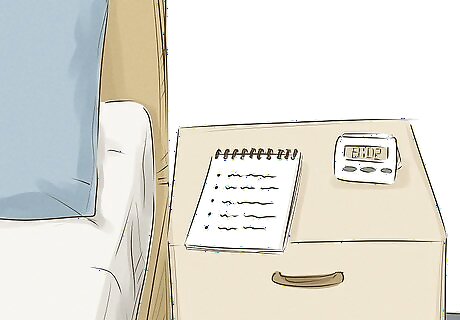
Reflect on incentives to stop your habit so you stay motivated. You may have a variety of reasons that inspire you to give up porn: perhaps you want more free time to pursue hobbies, greater intimacy in your relationship, and improved focus. You might also just have one, like overcoming an addiction to porn so you have a more active dating life. Either way, note the ways that quitting masturbation will support your endeavors to establish why you’re changing your habits. To address the reasons listed above, you might write follow-up details like, “I’ll be able to play pickup basketball again, connect on a deeper level with my girlfriend, and stay on task at work,” or, “I’ll appreciate the people I’m pursuing instead of comparing them to porn performers.” You might experience “moral incongruence”—when your moral or religious values and your sexual behaviors don’t match up—so you want to give up porn to avoid that inner conflict. Just remember not to harshly judge yourself: the drive to masturbate is normal. Keep your list in a place where it's easy to find, like inside your bedstand, so you can keep reviewing it. Studies show that just writing down a goal is highly effective because it encourages you to commit to it.
Set a deadline to stop masturbating to porn.
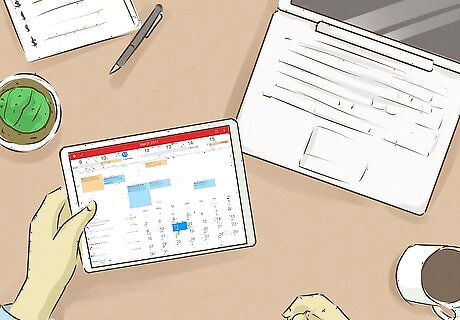
Create a timeline for gradually weaning yourself off porn use. First, set a deadline for quitting altogether, such as 2-3 months from now. Then, divide that time into 4 segments. During the 1st segment, limit yourself to 1 time a day. Then, cut that to 4 times a week during the 2nd segment and 2 times per week during the 3rd segment. Finally, masturbate and watch porn just 1 time during the 4th (and final) segment. When you quit in stages, the adjustment period will be easier and you'll experience less withdrawal. For instance, let’s say you were going to quit over a 2-month period: Each segment would last 2 weeks. During weeks 1-2, masturbate and watch porn no more than 1 time a day. During weeks 3-4, cut down to 4 times per week. For weeks 5-6, limit yourself to just 2 times per week. Finally, masturbate and watch porn only 1 time altogether during weeks 7-8.
Track the days you’ve resisted porn.
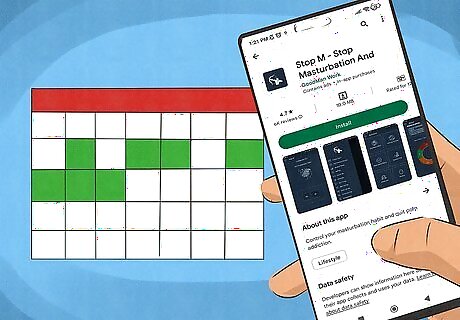
Keep a visual reminder of all the progress you've made. Check off every day that you resisted your unwanted habit and focused on other lifestyle choices. Mark them on a calendar, jot down a running tally in a journal, or record the amount of days on your phone’s notepad app. As you see the days rack up, you’ll have proof of your incredible willpower and reinforce that you’re capable of anything you set your mind to. Leave your reminder somewhere discreet—only you need to know about your goals and your personal journey. Consider using an app, like Stop M, which offers a 30-day "no masturbation" challenge, tracks your progress, and motivates you to resist masturbation addiction. Tracking is a valuable tool to encourage accountability and set new habits.
Talk to your partner about how porn has affected your relationship.

Have an open, honest conversation to find healthy support in your partner. It’s understandable if it feels a little uncomfortable to open up about your porn and masturbation habits. Just keep in mind that honesty is the foundation of every healthy dynamic. Explain why you seek out pornography and share any ideas about how you can enhance your sexual relationship with your significant other. Then, listen to your partner explain their needs so you can work toward a compromise that satisfies both of you. You might say, “I’ve gotten into the habit of watching porn and masturbating every night to unwind. I really want to stop because I’m concerned that it’s hurting our relationship. I’d be interested in experimenting with different techniques to spice up our love life. Is that something you’d like to try?” Also check in about their emotional and physical wellbeing: “How are you doing after hearing about this? Is there any way I can make sure you feel respected and valued? What are you looking for in our sex life?”
Forgive yourself for any slip-ups.
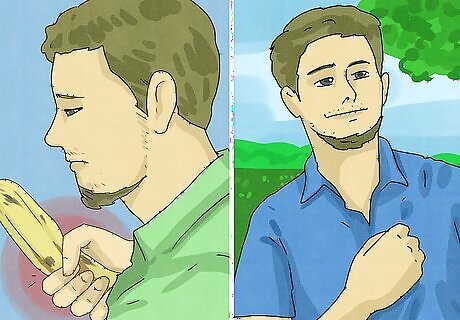
Move on and keep working toward your goals—we all make mistakes. Avoid punishing yourself if you give in to the urge to masturbate. You’re only human, and masturbation is a very natural act, after all. Instead of shaming yourself, cope with your guilt by using affirmations and positive self-talk. Remind yourself that you’re doing the best you can, and give yourself credit for all the work you’ve done in reprogramming your habits. Give yourself a pep talk like, "I have a lot of will power and can do anything I set my mind to. Tomorrow is another day." Remember—if you want to get back on track, you'll definitely be successful. Just return to your new lifestyle choices.
Consider therapy if you still struggle with porn addiction.

See a therapist if masturbation or porn interferes with your life. It’s perfectly normal if you’re struggling to stop completely. You may need additional strategies to help you quit, and a mental health professional can help you identify these. Consult a therapist to discuss why you feel the need to engage with your habits and the ways in which they impact your lifestyle. When you’re open and transparent, this trained expert can help you better understand your psychology and suggest ways to cope with your temptations. Discuss ACT Therapy (Acceptance and Commitment Therapy) with your therapist to come to terms with your urges—research shows that this shame-free approach is highly effective as those who use it reduce porn use by over 90% after 12 sessions. Talk to your therapist about how to develop a "relapse plan" in case you masturbate to porn again and want to return to your preferred lifestyle habits. Keep in mind that counselors have worked with many clients who have faced issues just like yours—there’s absolutely no reason to feel embarrassed about speaking up. Browse a directory of therapists and read their bios to see which ones resonate with you. For instance, you may wish to book a session with one who specializes in sex addiction.




















Comments
0 comment